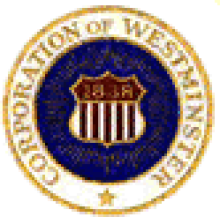Westminster Budgets for Open Access Fiber Network
On Monday, May 12, Westminster moved another step closer to deploying its open access citywide fiber network in Maryland. The Common Council approved a FY15 budget that includes $6.3 million for an FTTH network. The Carroll County Times reported that the $64.8 million budget was adopted 5-1. The opposing Council Member voted no on a different issue.
Last summer, the community launched two pilot projects; they installed fiber in a local retirement community and in the Westminster Technology Park. Community leaders decided to expand the pilots to the Air Business Center. They are already seeing results, with a women's fashion distribution center that decided to move from New York City to Westminster for the network.
We touched base with Dr. Robert Wack, Westminster Common Council President and the person spearheading the project. Dr. Wack told us businesses have been clamoring to get fiber service. Connectivity in the area is so bad, "they are desperate."
Community leaders want to connect 9,000 homes and 500 businesses. Dr. Wack told us the community expects to break even in 3 - 5 years; the build out should be complete in 2 years. Westminster expects to release an RFP for construction within the next week. They will release an RFP for a network operator in June.
Another Carroll County Times article described the basic plan for the project:
Westminster’s fiber network will be a “last mile” project, with the city paying to install “dark fiber” to the door of every home and business in the city and connect to the county’s fiber optic backbone, the “middle mile,” according to Wack.
Dark fiber is fiber optic cables which are connected but not in use, or “lit,” he said.



